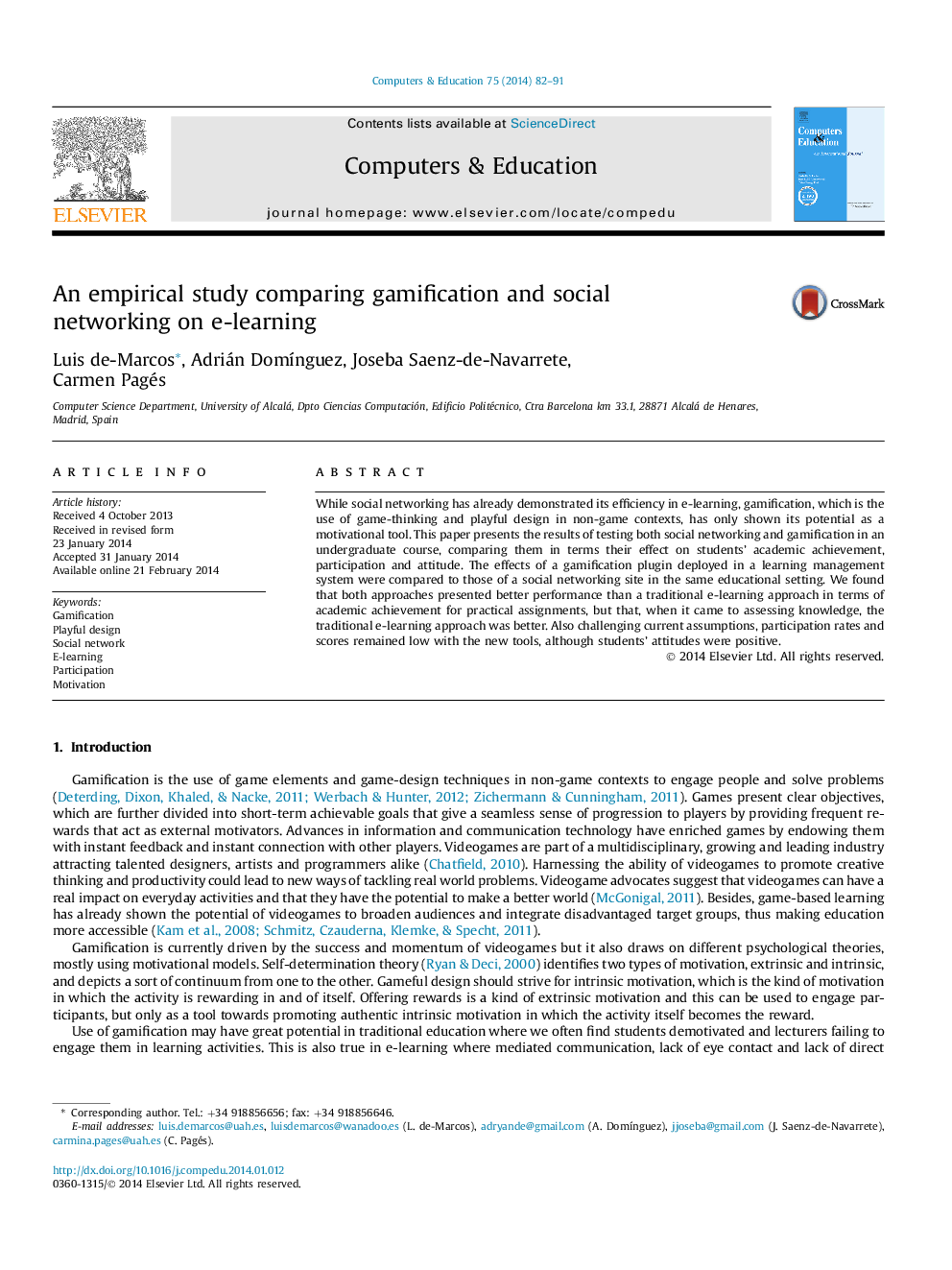| Article ID | Journal | Published Year | Pages | File Type |
|---|---|---|---|---|
| 348414 | Computers & Education | 2014 | 10 Pages |
•Social networking, gamification and traditional e-learning approaches are compared.•Participants in novel approaches get better results concerning skill acquisition.•Traditional approach yields better results for knowledge acquisition.•Students' attitude towards the new tools is positive.•Participation rates are low challenging assumptions found in current literature.
While social networking has already demonstrated its efficiency in e-learning, gamification, which is the use of game-thinking and playful design in non-game contexts, has only shown its potential as a motivational tool. This paper presents the results of testing both social networking and gamification in an undergraduate course, comparing them in terms their effect on students' academic achievement, participation and attitude. The effects of a gamification plugin deployed in a learning management system were compared to those of a social networking site in the same educational setting. We found that both approaches presented better performance than a traditional e-learning approach in terms of academic achievement for practical assignments, but that, when it came to assessing knowledge, the traditional e-learning approach was better. Also challenging current assumptions, participation rates and scores remained low with the new tools, although students' attitudes were positive.
